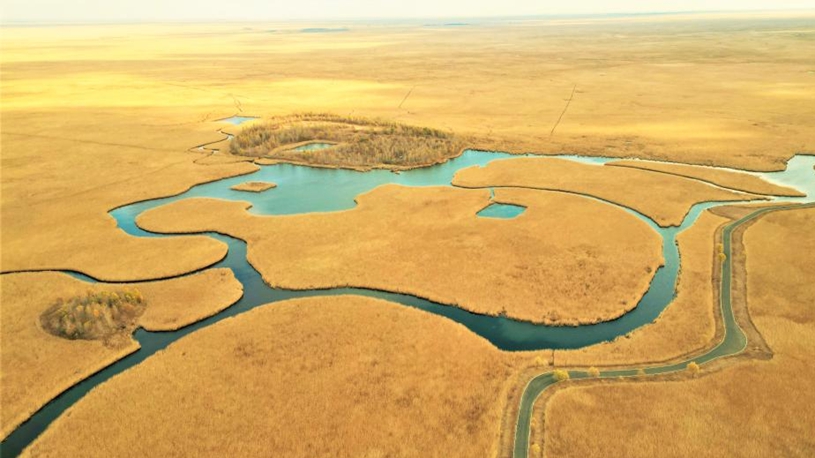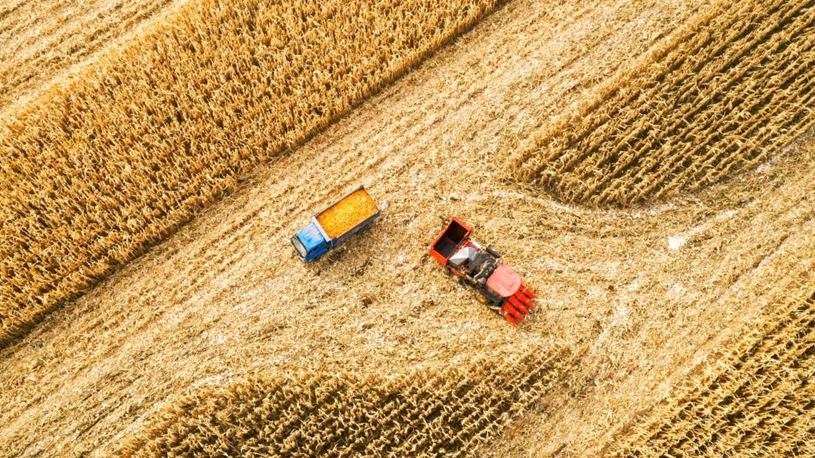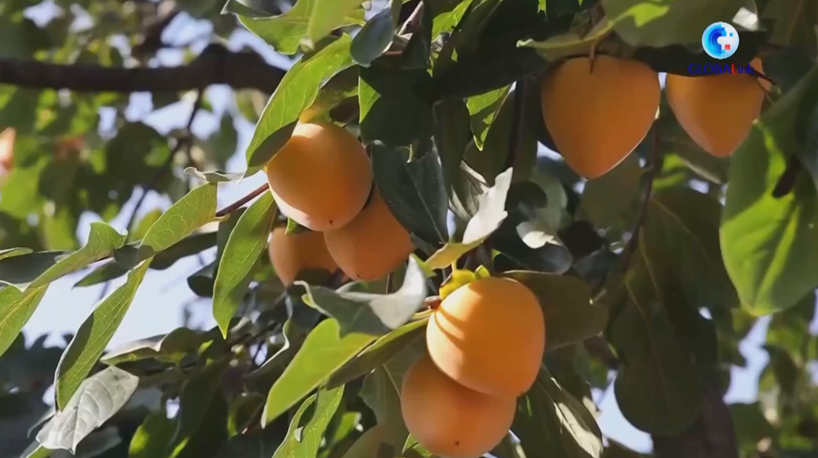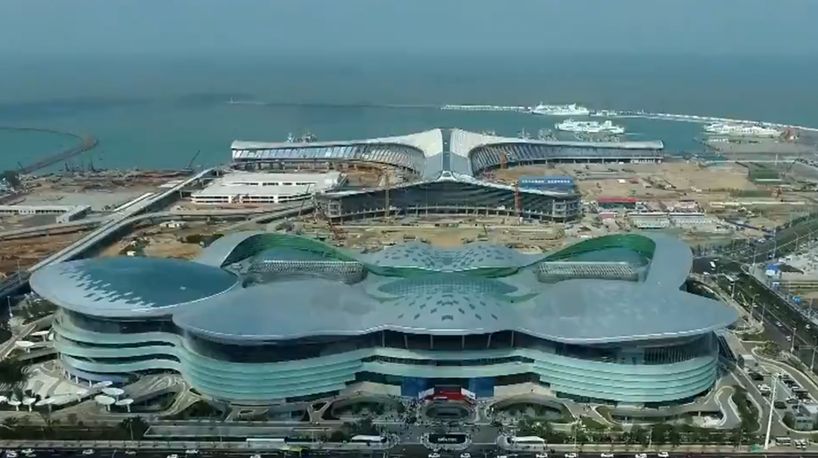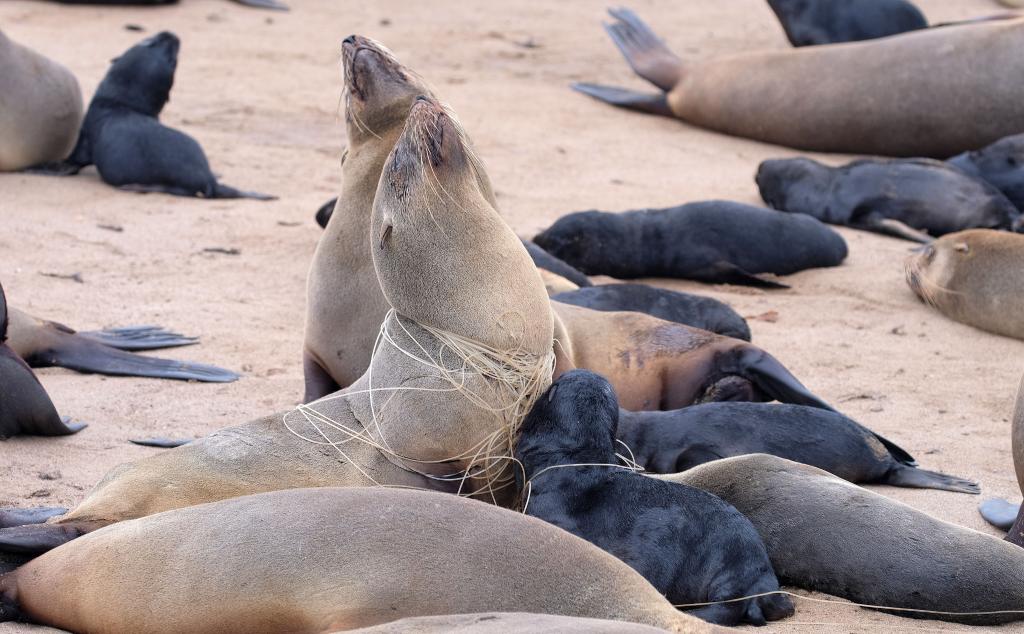
A Cape Fur Seal entangled in fishing line rests on the shore in Walvis Bay, Namibia, on Dec. 4, 2020. (Ocean Conservation Namibia/Handout via Xinhua)
Ocean Conservation Namibia, a private initiative that rescues seals from entanglement caused by ocean rubbish and plastic pollution, is boosting awareness of marine animal protection through social media platforms.
SWAKOPMUND, Namibia, Oct. 31 (Xinhua) -- In aquatic ecosystems, there is a diversity and variety of wildlife. However, in recent times, the use of plastic bags has caused a hazard for wildlife, creating a topic of concern surrounding the safety of marine animals.
"So much of what is going to waste can actually be recycled. There need to be stronger penalties on people caught dumping plastic/rubbish, and there need to be much stronger penalties on the fishing industry when caught dumping fishing gear," said Naude Dreyer, the co-founder of the Oceans Conservation Namibia.
Ocean Conservation Namibia (OCN) is a private initiative started in 2020 comprising a team of seven volunteers. Their aim is to rescue seals from entanglement caused by ocean rubbish and plastic pollution, particularly discarded fishing lines and ghost nets.
The team's daily duties range from rescue patrols, administration, social media management, fundraising, correspondence, maintenance, and educational outreach.
OCN has various social media channels, including a YouTube channel with nearly 900,000 subscribers and a TikTok account with over 1.3 million followers.
The videos which they share on their online platforms have created awareness in order to change peoples' mindsets on the danger of plastics to aquatic animals, Naude Dreyer told Xinhua. "People watch our rescue videos online and get a better idea of the potential impacts of plastic pollution on ocean life."
"We believe it has been quite effective. We receive emails, comments and correspondence daily from people all over the world telling us how watching our videos have led to them changing their behavior in the way they treat plastics," he said. "Also locally we now have regular engagements with the fishing industry - they phone us whenever they see animals in trouble."
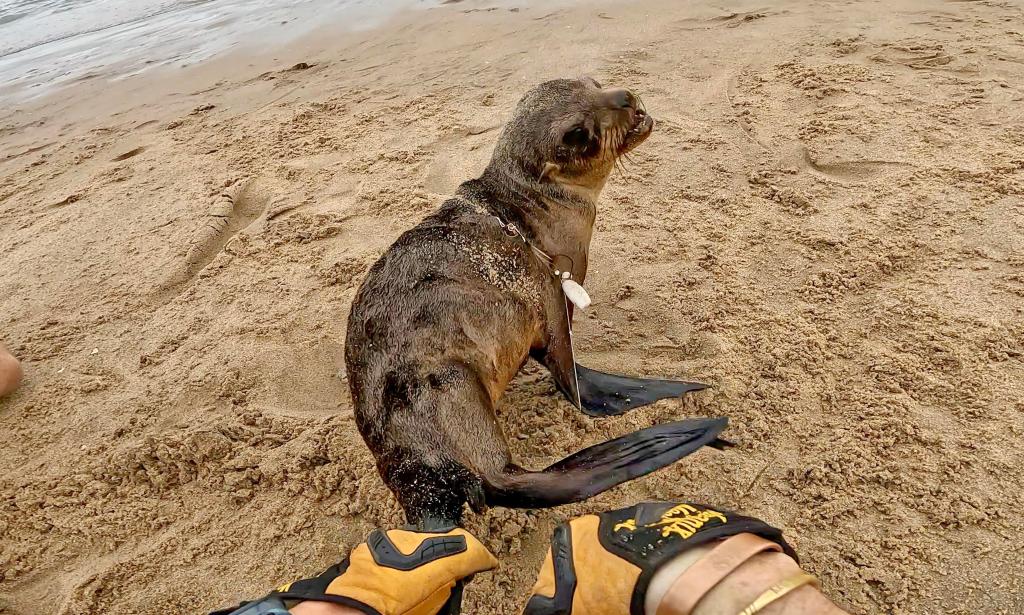
A seal entangled in a discarded fishing net is removed by the co-founder of Ocean Conservation Namibia (OCN) Naude Dreyer at Walvis Bay, Namibia, on June 26, 2022. (OCN/Handout via Xinhua)
Since 2020 when the initiative was founded, they have rescued approximately 2,800 Cape Fur Seals and collected 458 snoek fishing lines from the seals and thousands of plastic bags.
Despite not being aggressive animals, Dreyer said that seals often become aggressive in self-defense when they are confronted because of their strong jaws and sharp teeth.
"The biggest risk is getting bitten by a seal. All the members of our team have been bitten a few times but luckily never too seriously," he said.
"We have a big BiliBili channel, so many people in China do get to watch our videos, and we hope that seeing them has an effect on them changing their plastic behavior," he said.
"We are trying to get out the message of plastic pollution awareness spread to as many people as possible. Bilibili is the best way for us to reach a Chinese audience," he added. ■





